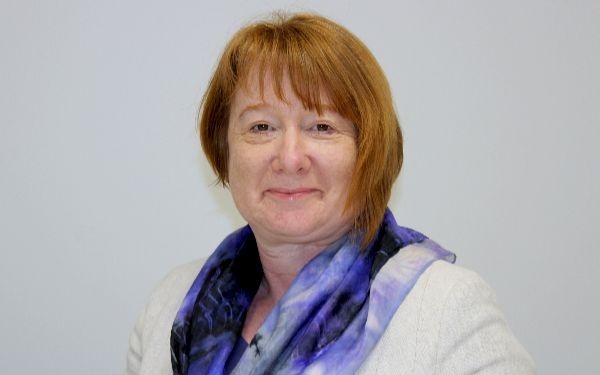
A “worrying” number of looked-after children and care leavers have been wrongly placed in supported accommodation, Ofsted’s social care chief has warned.
Yvette Stanley said that inspectors had encountered young people who were “clearly in need of a higher level of care than supported accommodation is equipped to provide” in visits to the settings.
In a blog post published last week, the regulator’s national director for social care added that, in some cases, supported accommodation providers were, in effect, operating as unregistered children’s homes by straying outside the terms of their registration with Ofsted.
Previously unregulated placements
Supported accommodation is similar to what was previously referred to as semi-independent provision for looked-after children.
However, unlike its predecessor, it is regulated when provided to 16- and 17-year-old children in care and care leavers. Providers, who have been required to register since October 2023, may not admit children under 16.
The introduction of regulation is the former Conservative government’s chief response to longstanding concerns about the safety and suitability of provision for young people in what were unregulated settings, including the placement of some in barges, caravans or even tents.
Comparisons with children’s home regulations
However, the new regulatory regime is relatively light touch, with Ofsted regulating providers as a whole, no mandatory qualifications requirements for registered managers or staff and organisations expected to meet four standards and deliver ‘support’, but not ‘care’.
By contrast, children’s homes are regulated at an individual service level, their registered managers and staff must have, or be working towards, defined qualifications, they must meet nine standards, and their core regulatory purpose is to deliver care, along with accommodation.
As a result, the reform was widely criticised by campaigners for looked-after children on the grounds that it created a “two-tier system” that left many 16- and 17-year-olds without the care they needed. They also warned that supported accommodation would become, in effect, the default, for older teenagers in care.
Their fears appear to have been at least partially borne out by Stanley’s comments.
‘Worrying’ number of children wrongly placed
“Many providers are delivering well-targeted and appropriate support to young people who are ready for more independence and responsibility and do not require additional care,” she said.
“But we are also encountering a worrying number of children who should not be in supported accommodation.”
Stanley pointed to guidance on the 2023 supported accommodation regulations. which states that the setting caters for “children aged 16 and 17 who have relatively high or increasing levels of independence, who are ready to gain further skills in preparation for adult living, and who do not need or want the degree of care or type of environment provided in a children’s home or foster care”.
While she said supported accommodation services who temporarily provided young people with ‘care’ when they needed it would not usually be straying outside the terms of their registration, some were going beyond this.
Services ‘acting as unregistered children’s homes’
“Increasingly, we have begun to hear the use of terms such as ‘higher needs support’ or ‘high support’, which stretch the parameters of supported accommodation too far,” added Stanley.
“In some cases, it means that providers are operating unregistered children’s homes and that children are not getting the care they need from people who are suitably skilled and qualified.”
She said that Ofsted expected supported accommodation providers not to admit children if:
- they had high or complex needs;
- their liberty was restricted;
- they needed a high level of ongoing care and supervision, possibly requiring high staffing levels;
- they required help and support with personal care;
- there was no realistic expectation for increased independence in the foreseeable future.
More providers than expected
While there had been concerns from council leaders that the regulation of supported accommodation would lead to a reduction in provision, Stanley said Ofsted had received “far more applications” to register than expected: more than 1,300 as of the beginning of July, with 400 providers now registered.
She warned that the sector may have become too big in order to compensate for gaps in provision for looked-after children elsewhere.
“The high (and growing) number of 16- and 17-year-olds in supported accommodation should give us all cause for concern that, as a result of gaps in provision elsewhere, too many children are being pushed towards an independence for which they are not properly prepared,” she added.
Ofsted ‘will not hesitate’ to act
Stanley warned that, where providers were breaching the terms of their registration, Ofsted would act.
This could include supporting providers to become suitably registered, however, she added: “When we have immediate concerns for the safety and welfare of children, we will not hesitate to take more urgent and serious action.”
Under the terms of Ofsted’s enforcement policy, this could include imposing a condition prohibiting a supported accommodation provider from delivering a service at particular premises.




 Bournemouth, Christchurch and Poole
Bournemouth, Christchurch and Poole  Hampshire County Council
Hampshire County Council  Lincolnshire County Council
Lincolnshire County Council  Norfolk County Council
Norfolk County Council  Northamptonshire Children’s Trust
Northamptonshire Children’s Trust  South Gloucestershire Council
South Gloucestershire Council  Wiltshire Council
Wiltshire Council  Wokingham Borough Council
Wokingham Borough Council  Children and young people with SEND are ‘valued and prioritised’ in Wiltshire, find inspectors
Children and young people with SEND are ‘valued and prioritised’ in Wiltshire, find inspectors  How specialist refugee teams benefit young people and social workers
How specialist refugee teams benefit young people and social workers  Podcast: returning to social work after becoming a first-time parent
Podcast: returning to social work after becoming a first-time parent  Podcast: would you work for an inadequate-rated service?
Podcast: would you work for an inadequate-rated service?  Family help: one local authority’s experience of the model
Family help: one local authority’s experience of the model  Workforce Insights – showcasing a selection of the sector’s top recruiters
Workforce Insights – showcasing a selection of the sector’s top recruiters 

 Facebook
Facebook X
X LinkedIn
LinkedIn Instagram
Instagram
What’s the impact on Youth Justice placements?
And children allowed back to live with their abusers
More and more young people are developing mental health issues, and struggle to regulate their emotions, some young people are misusing drugs, which is also a factor to their behaviour, their experiences of loss, rejection, abuse, exposure to Child Sexual exploitation, criminal exploitation makes their needs more higher and needing more support on several levels.
When some young people go to these supported accommodation, it is due to Children Services finding difficulty in placing these high end young people, as certain providers, residential settings are not willing to accept these young people. Sometime informaton that comes from the social Services is not entirely clear about the young person’s needs until being placed. Social services go on to critiscise the providers when the Supported Accommodation are reporting that they are unable to meet their needs and this can cause conflict between providers and Children Services.
There is clearly a gap in provision, which needs to be addressed, rather than blaming supported accommodation for taking these young people, The Local Authority are the ones requesting these placements, as their hands are also tied as to where to place them. There needs to be a more joint up approach in how to link the services with the needs of the young people that are more high end and perhaps more thought need to be given on how to support the placements.
There are some supported accommodation, where the support is exemplar to none and some good work has been achieved by those establishments with the most challenging young people.
This is achieved by developing those needed relationship with young people, building trust and setting clear boundaries, supporting them in different ways and being creative with how work is being undertaken with them. This is not because someone has a degree, or a masters, but because those individuals know how to work and manage young people and build relationship. These skills sometimes are not from a theory, its being human first, and having a relationship. its lived experiences that make the best workers.
After all Supported accommodation normally get the young people at the point when so much damage has been done, where there have been so much failings in the system for these young people. It takes certain skills to be able to support young people on a path back to where they can meet their full potential, whether that is in education, training or employment. Some sadly are not going to get there as the damage is too great, but all we can do is continue to work with the ones who want change and have not allowed their situation to define their outcome, and I have found sometimes initially young people don’t know they want change until that relationship has been established and the conversations have started and that is the real skill we need in our workers.
Like it! I wondered what if anything David Howe would offer on the issues of sexualised attachment ~ this was by far the most difficult to tease out in Foster Care placements where the relationships had been left unchecked with devastating impact and nothing gets done despite sw’s having concerns!
The wry life of the IRO, eh! How independent should they really be?
Equally, important though are the parameters of Ofsted and whether or not, as happened with the CQC, they are given delegated or transferred powers from the Competition and Mergers Authority ~ it’s a seriously omission and seriously grey area.
The provisions within s174-s177 of the Company’s Act 2006 are, now, vital discovery and disclosure information ~ who’s looking at this and what powers does it afford and by who?
Thank you Joan, you could not have depicted the situation any better. Under 16s are usually placed in Supported Accommodation as a last resort. This is at a point where there is no other viable option.
I think that a solution has to be Local Authorities investing in and setting up residential homes once again. I know there is a legacy of horrendous abuse across the board when LAs owned and ran children’s homes. However, times have changed and there is a bit more scrutiny in the sector, that will hopefully mean children on these settings don’t have an awful experience like yesteryears!
Well said!
I am sorry but OFSTED are in large part to blame. They have made it so regulated to provide children’s homes that it is near impossible to meet the requirements, get the staff and be profitable so there are not enough regulated placements. So LA’s put kids in the only available placements left. Semi-independence. i don’t think any YP should be in semi-independence even at 18, they are far from ready, in all but a few cases.
But LA’s have to care for them somewhere. With no foster care spaces, no supported lodgings and regulated residential homes taking younger less challenging YP what is the alternative?
My grandchild rehoused in a street known as sex workers she’s gets asked if she’s one no thought or care was given to her being rehoused. She was a looked after child with no help after she needed her own place.
Ofsted state that ‘If we believe a supported accommodation provider is either operating as an unregistered children’s home, or not providing the level of care that the child clearly needs, we will act’. Do Ofsted then have the right accommodation outside of Supported Accommodation when a children’s home will not accept the 16/17 year old? When asked Ofsted say that it is the local authorities responsibility not theirs. This is a complete dereliction of corporate parenting akin to burying ones head in the sand. These ‘complex’ young people need kind, caring and nurturing Supported Accommodation when it is proven that children’s homes providers are very reluctant to take them and often refuse point blank.
There are the most vulnerable young people in Unregulated placements as young as 12 on Dols but the delays in registration of children’s homes after jumping through hoops is unreal. Some homes having large wage bills with no income having to wait for sign off and yet in other areas this can take 10days .